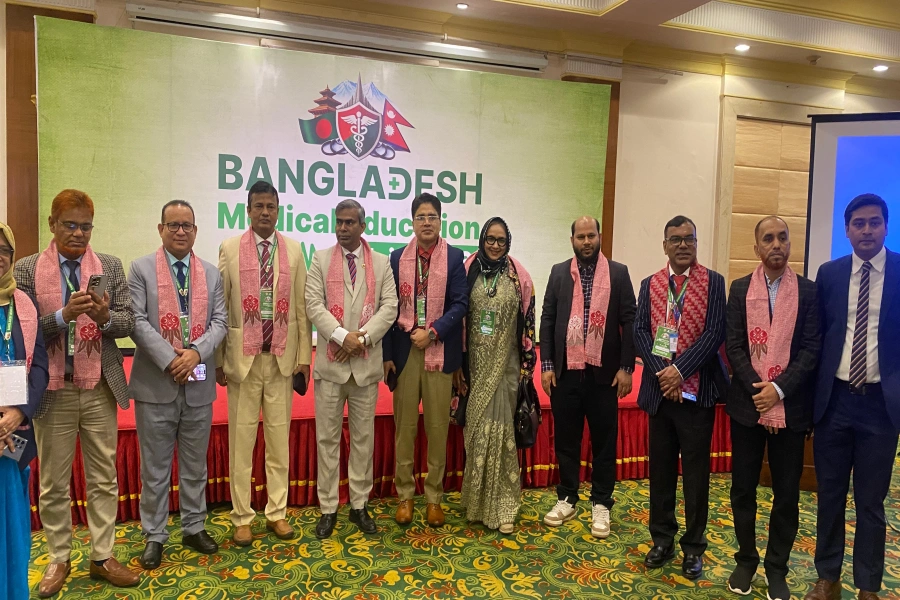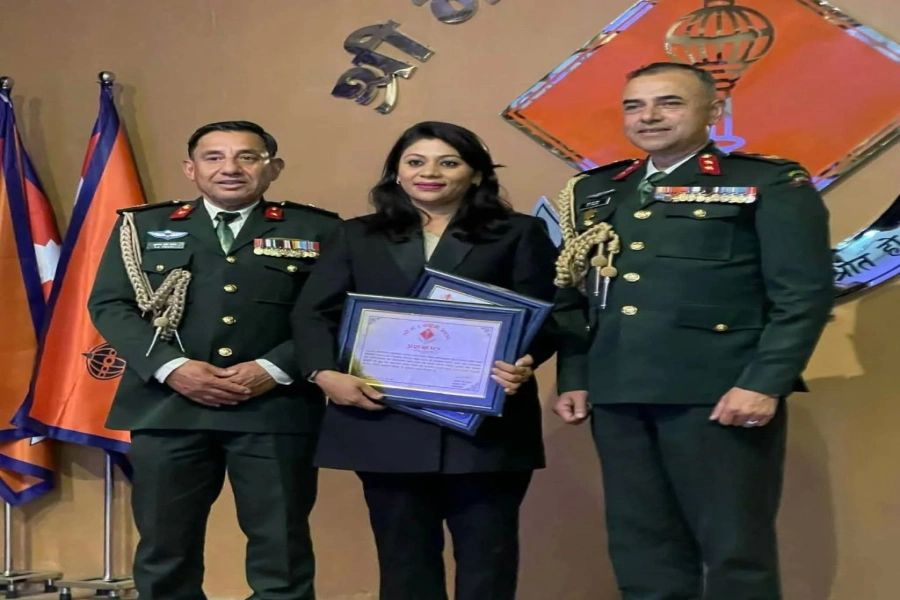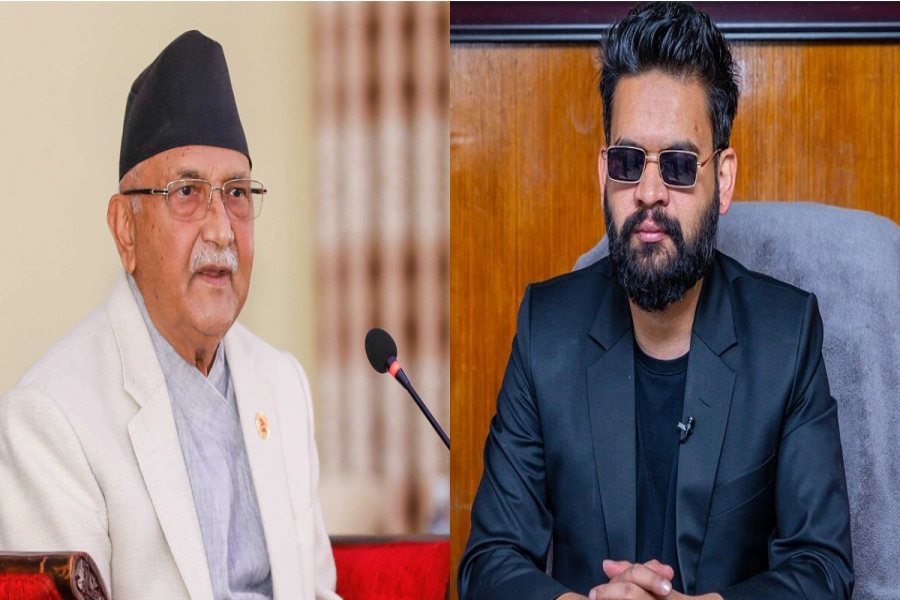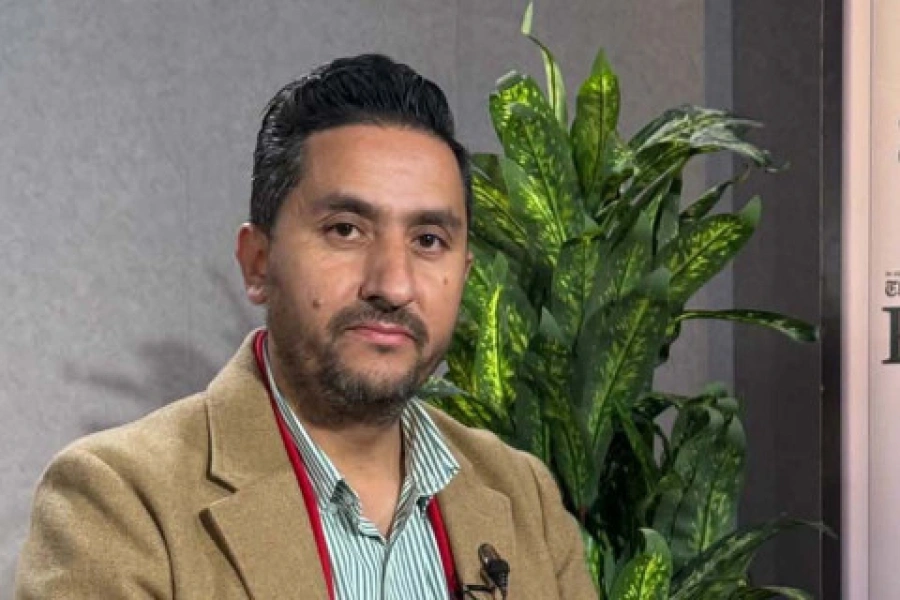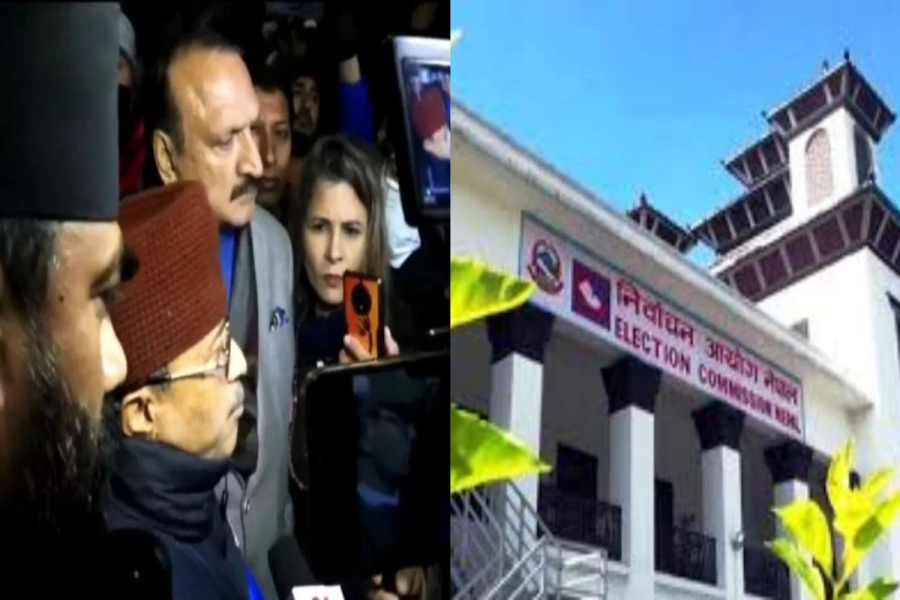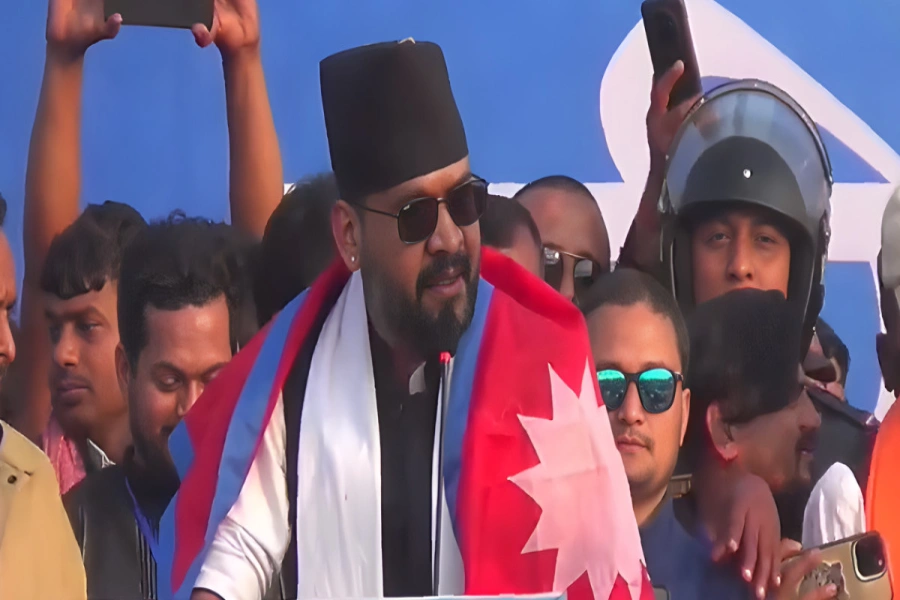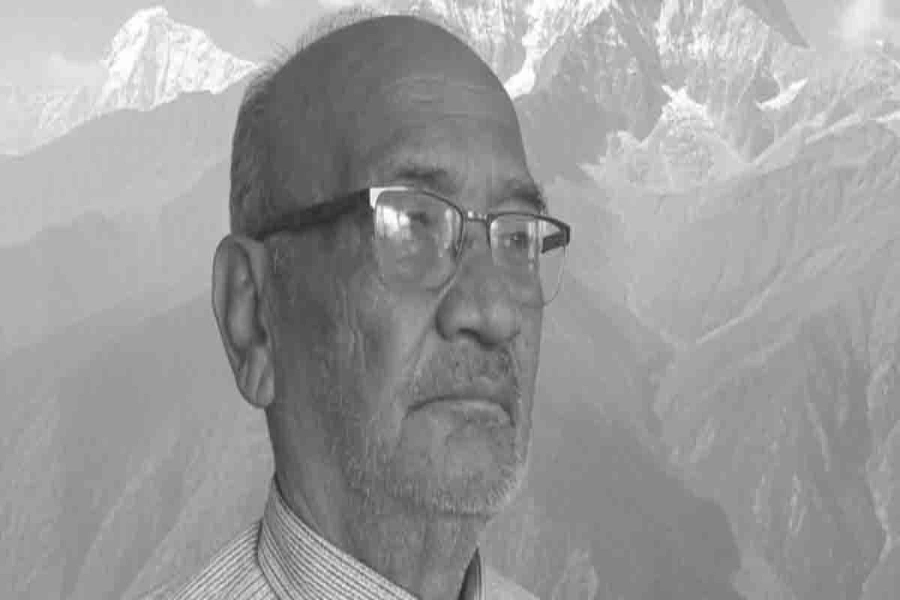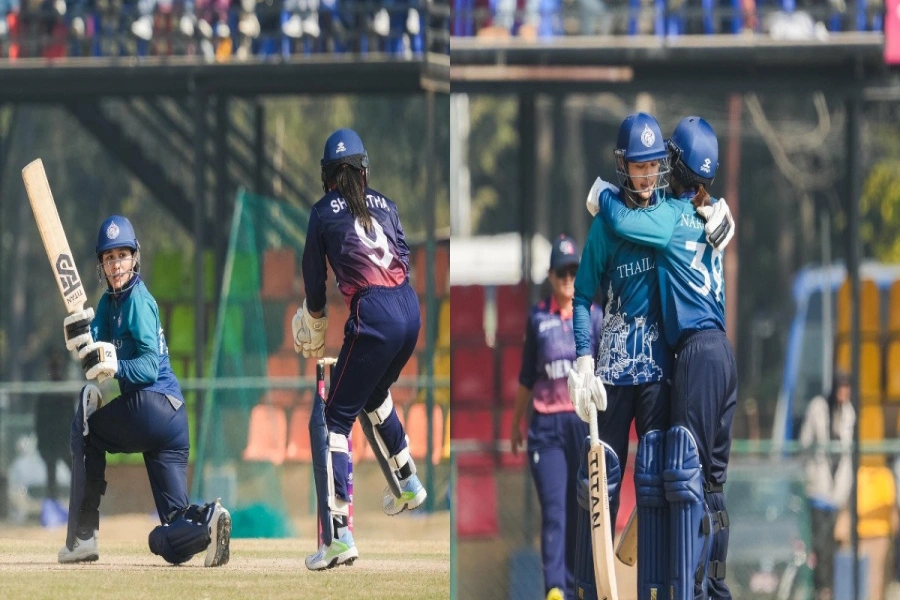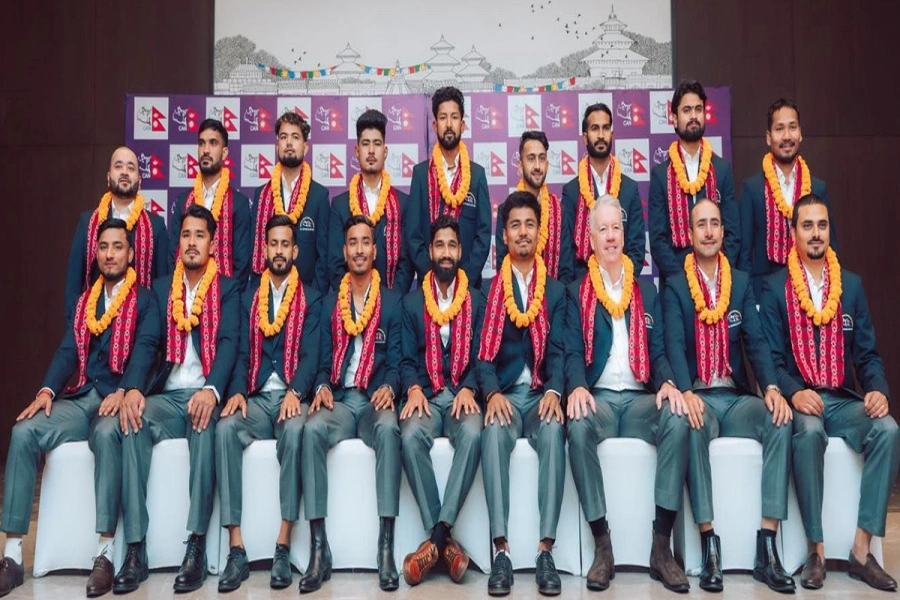The question every Nepali is asking and will be asking for years to come will be why India blockaded Nepal
Indian President Pranab Mukherjee’s visit to Nepal is special, not because the head of Indian state is coming to Nepal after 18 years but because he is one of the Indian politicians who is said to have played an instrumental role in bringing the warring Maoists into mainstream politics in 2005, when he was India’s defense minister. Mukherjee is known as chief architect of 12-Point Agreement between Maoist party and Seven Party Alliance (SPA) which officially put to an end the decade-long insurgency and formally started the peace process.
Mukherjee’s visit is important because he was the External Affairs minister of Congress-led United Progressive Alliance (UPA) government during which Comprehensive Peace Agreement (CPA) between Maoist and parliamentary parties and other agreements with Madheshi took place. He was the one who in 2009 revealed that India had brought the Maoists into the mainstream politics. He is the witness of the dealings of UPA government with Nepal. He is the one who is said to have advised his government last year not to go to the extent of blockading Nepal. Back home, he represents the government that symbolizes Hindu fundamentalism and pitches for Hindu state in Nepal.
He has close relations with top leaders of Nepal. Most of all, the message he will take back home to his government will be of vital political importance here. Therefore visit to Nepal by such a personality— though as a ceremonial president—is of a huge importance for us. Welcome to Nepal, Mr President!
But the President during his sojourn here is also equally likely to be misinformed about what people think about India because he will be surrounded by his cronies and officials who tell him only what he wants to hear. Uncomfortable questions are rarely raised during the ‘goodwill’ visit. But truths, however unpleasant, must be told. Indian press has already made public his ‘to-do-list’ in Nepal. Outlook, an Indian magazine, suggested last week that he should raise the issue of addressing the concerns of Madheshi people and amend the constitution to their liking. Little has been reported about Mukherjee’s visit in the Nepali media because mainstream publications were in Dipawali break. Of course, the President can ignore what an opinionator in a broadsheet daily has to say but he must be briefed on following matters anyway.
He should take note of how things have gone awry after the 12-point pact. The main agenda of the agreement was to “establish full democracy by bringing the autocratic monarchy to an end through creating a storm of nation-wide democratic movement of all the forces against autocratic monarchy by focusing their assault against the autocratic monarchy from their respective positions.” It did not have a word on secularism and federalism. Nor did 2006 Comprehensive Peace Agreement, which is often hailed as a landmark deal in Nepali politics. The CPA commits to “forward looking restructuring of the state by resolving the prevailing problems related to class, ethnicity, regional and gender differences.”
How did this translate into “federal governance system with autonomous provinces” in 2007 22-point agreement with Madheshi People’s Right Forum Nepal? And how did that turn into “federal structure with autonomous regions, including the Madheshi people’s aspiration for an autonomous Madhesh state” in 2008 deal with United Democratic Madheshi Front, which then Indian ambassador to Nepal Shiv Shanker Mukherjee claims to be witness of? How does “an autonomous Madhesh state” mean a single Madhesh state from East to West or Madhesh only provinces in the Tarai plains?
President Mukherjee needs to be asked these questions because he was the External Affairs minister of UPA at that time.
Another pressing issue concerns (now suspended) CIAA chief Lokman Singh Karki.
Nepali press has laid it bare how a section of Indian establishment was exerting pressure on Nepali political actors to appoint controversial figure like Lokman the CIAA chief in 2013. Even Mukhetjee is said to have telephoned his Nepali counterpart to approve Karki’s name. Nepalis would like to know if and why the President did so.
Madheshi leaders have been demanding that entire Madhesh should be declared (at most two) Madhesh provinces. Apparently, India’s position remains the same. India needs to understand that federalism debate has not been resolved not only because Nepal’s major parties (Nepali Congress, CPN-UML and Maoist parties) are reluctant to assimilate it.
Frankly, virtually no leader from these parties believes federalism can be implemented and institutionalized. It is another thing that they do not speak of it in public. Federalism dispute has lingered on because it has raised specter of secession.
Nepal’s Tarai plains—apart from being a passage to India for the rest of the country—serve as country’s lifeline in terms of population strength, agricultural productivity and industrial development. Any revision of provincial boundaries that seeks to take away this lifeline from other provinces is going to be vehemently opposed. Nepalis withstood the cruel blockade and supported the government last year because they knew that India was bent on disjoining the ‘passage to India’ from the rest of the provinces.
As long as a meeting point will not be found that, in some way, allows other provinces to be connected to this vital lifeline, federal issue is not going to get resolved. Not at the times like these, when there is resurgence of anti-federalism sentiment in the rest of the hills and the mountains. Nepali people have understood from five months of Indian blockade and Madhesh movement that federalism could prove to be a design to divide or destabilize the country eventually.
One of Indian contentions over the new constitution has been that it does not recognize Madheshis as “full citizens.” This issue needs to be put in larger social context. Madhesh has open borders and roti beti relations with India. Madheshi families marry off their daughters to Indian men and bring brides for their sons from there. Madhesh interacts more with towns across the border than with other parts of Nepal. This special relationship sometimes blurs the distinction between two nationalities. Yet, the people from Madhesh and those from across the border represent two different countries. This is why there is a provision of naturalized citizenship for Indians who have chosen to make Nepal their home. And this is why there are certain restrictions on them. Once we assimilate the fact that Nepal’s Madhesh and regions in India are two different countries and people having their roots in these two respective countries are two different nationalities the ‘full’ and ‘half’ citizen perception will seem fickle.
So what else should the President know?
Nepalis are angry with India especially after India’s open meddling in Nepal’s constitution process and five months of economic blockade. This resentment has not died down. The #IndianPresidentNotWelcome trending in Twitter on Wednesday is the manifestation of the same emotion. This is the outcome of deep resentment the economic blockade generated in Nepalis, not opposition to Mukherjee’s visit. The politicians he will interact with might never ask him this. But the question every Nepali is asking and will be asking for years to come will be why India blockaded Nepal.
Nepalis in general know that India, through its various channels, is playing with the aspirations of Nepali people by taking certain discredited leaders into its fold. But this strategy won’t work. Despite occasional strife in diplomatic relations, people-to-people relation between India and Nepal has not deteriorated. Leaders come and go but people remain. Therefore India should try to win the trust of Nepali people. It should get rid of the delusion that it can have its way in Nepal just by pleasing a certain group of Nepali politicians or by using them to do India’s bidding in Nepal.
Perhaps the most important bit of message that President should deliver to his government is this: India is no more a sacrosanct in Nepal’s public sphere. It has started to be critiqued, questioned and debated from local tea shops to the media space. Among other things this visit should serve as an opportunity for world’s largest democracy to review why people of a country dependent on India for virtually everything keep bitter feelings against them. Other issues will take care of themselves.
mahabirpaudyal@gmail.com
Bangladesh calls for shifting T20 World Cup matches out of Indi...







